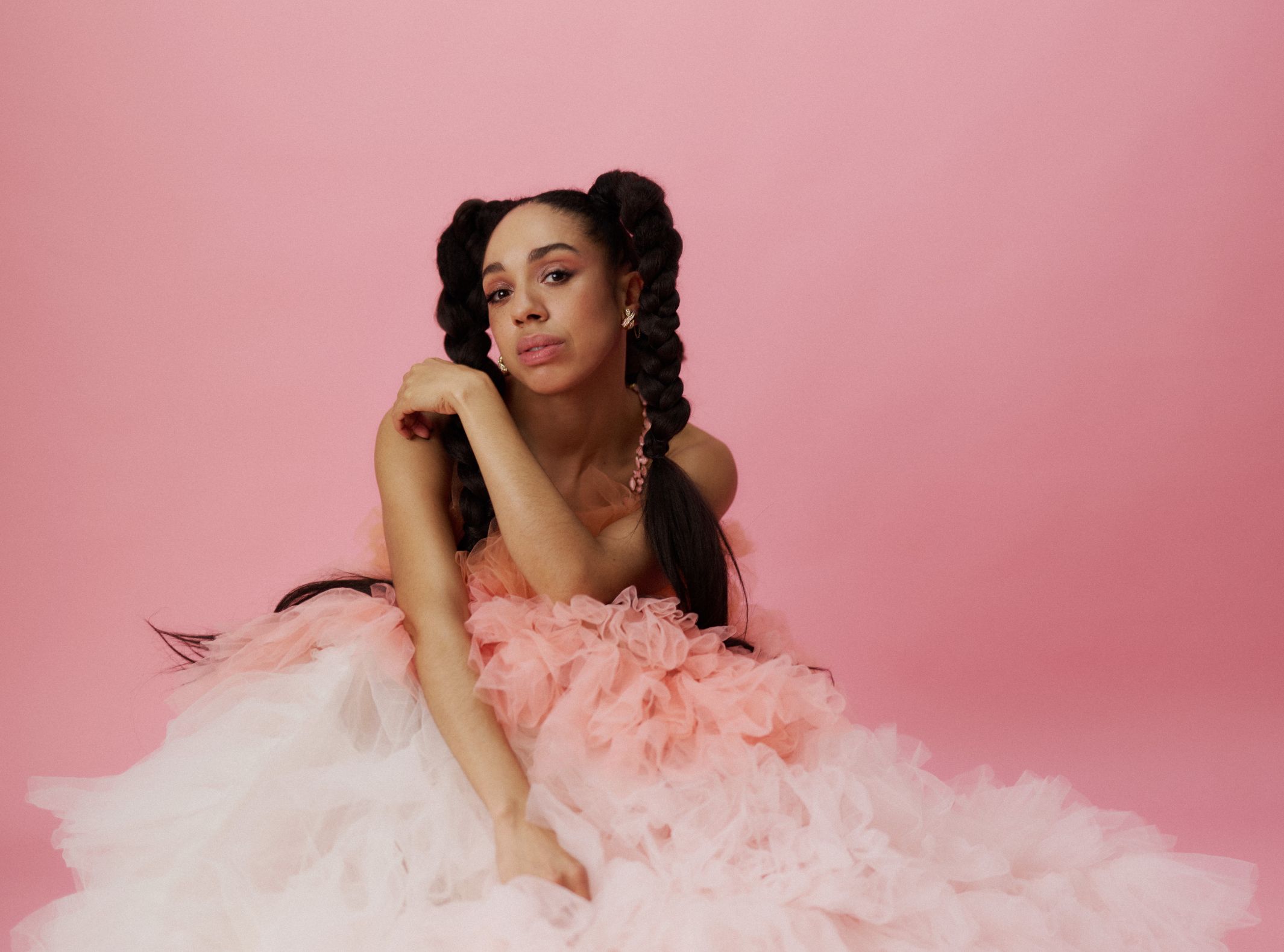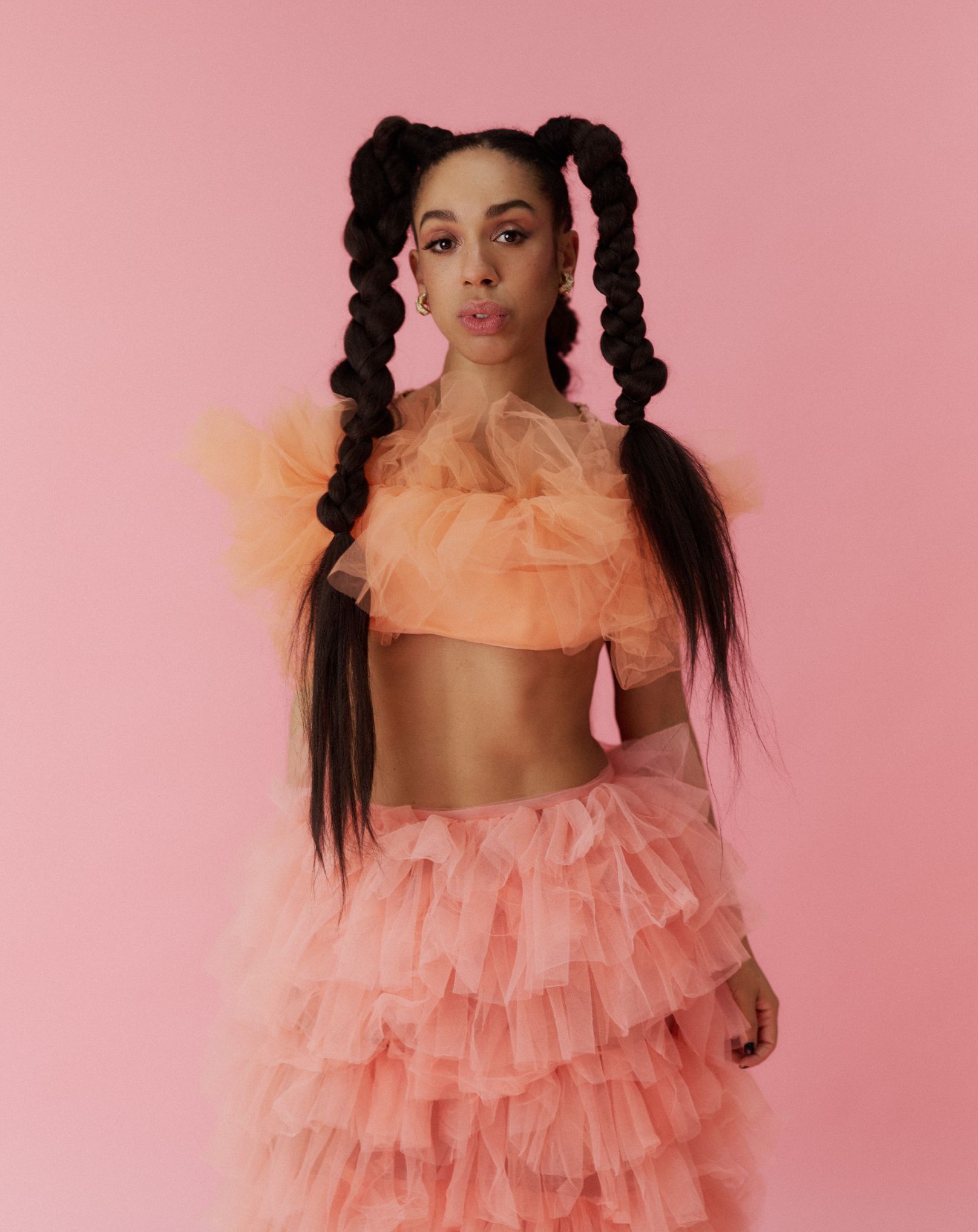
Pearl Mackie
Pearl Mackie is doing it all. Traveling through time and space with the Doctor in BBC’s Doctor Who, adapting to the times as a woman of color in 1700s England in ITV’s Tom Jones, and surviving the cut-throat world of politics in Netflix’s The Diplomat, she hasn’t stopped for breath yet. Currently taking a break from the screen, Pearl is returning to the stage in Grenfell: In the Words of Survivors this month. A verbatim play from the residents at the core of the 2017 Grenfell Tower tragedy in London.
Continuously on the go, the actress credits luck for helping her get the opportunities she’s been afforded today. And while that may be true to some extent, Pearl is a true talent and force of nature. Her passion shines bright, and she takes on every role with the care that it deserves.
Doctor Who thrust her to the front of public consciousness, right into the spotlight. Undertaking the role of Bill Potts was no easy task. Being the first openly gay companion on the hit BBC flagship show, compounded by the fact that she is a woman of color, she took the role and ran with it. Turning Bill into one of the most unforgettable companions to date. With her powerful and nuanced performance, we’re treated to something special. Seeing someone who isn’t often represented on the screen have adventures, fight the monsters that go bump in the night, and be the hero.
As her impressive list of credentials continues to grow, she grows along with it. When speaking with her, there’s an excitement about the future that’s almost palpable. There’s no doubt that she will continue to dazzle us on the screen and beyond.
Pearl Mackie sits down to chat with 1883 Magazine’s Dana Reboe about the importance of shows like Tom Jones, her time on Doctor Who, what she loves about the stage, and more.
This interview was completed prior to the SAG-AFTRA strike.
Shows like Tom Jones and Bridgerton are breaking the mold by giving us race-bent casts and a truer depiction of history overall. How does it feel to be a part of that narrative and what were your first thoughts when you read the script?
It’s great to be a part of a show that depicts black and mixed-race people in Britain, whether the story details are true or not. You know, we existed in London and in many other major cities throughout Europe. I think it’s nice to have a place in period pieces because we were here during that time, too, and it isn’t often represented on screen. Period pieces are such a fun form of escapism that allows you a little window into the past, which is so exciting. Growing up I loved watching things like Pride and Prejudice, but I never thought, as an actor, there was room for myself in those stories.
Going forward I really hope young black girls and young mixed-race girls truly get to see themselves. And the show doesn’t gloss over the racism over, either. When Sophie and Honour venture out into the countryside on their way to London, they talk. They have some realistic conversations and I think that’s one of the things that really drew me to this script. ‘Oh, yeah, it’s cool to have these two women of color and then we’re not going to address the elephant in the room.’ But they really do it. At the beginning of episode one, you find out that Sophia’s mother is an enslaved woman. I thought it was really bold move of them to address that when they could have easily passed over it.
Especially given who the primary audiences are for period dramas, it was a gutsy move. And it will definitely trigger uncomfortable conversations.
But necessary conversations.
Completely agreed. What about Honour resonated with you?
When I first got the script I said, ‘Why are they asking me to play the maid character?’ Historically, that’s a role a lot of black actresses filled. And it wasn’t something I was comfortable with. But once I found out that Sophia Western was cast and at the heart of it is this relationship between these two women I was like, ‘Okay, cool. All right.’ The two of them are sort of navigating this environment, trying to figure it out. And that kind of really drew me in. And, yeah, I just really liked the fact that they say that, you know, she (Honour) was the only person who could do her (Sophia’s) hair. And as a woman of color, you know, that felt real to me. I loved their story and their bond, and the relationship they built, which is really joyous. And eventually, Honour goes on her own journey having had this relationship to help ground her.
Switching it up; congratulations on The Diplomat being renewed for season two. My mother and I whipped through it in two days [both laugh].
I’m honored to be honest with you. I’m really grateful to be a part of the show. We just got the scripts for season two, actually.
You just got the scripts? I’ll keep my questions to myself.
You’d never going to get anything out of me anyway [laughter] that would be like trying to get blood out of a stone. My partner, she’s a massive fan, and she almost lost her mind. She was like ‘Let me see what it’s all about’ and I was like, ‘No. I’m never going to tell you.’
That’s totally fair. I’ll make a note for when the season premieres! Moving to Doctor Who for a second. Bill truly connected with audiences, and we wish we could have gotten more time with her. Can you touch upon your first thoughts when you got the part and what you think Bill is up to now since her ending was so open?
When I first got the part, I mean, you really think it’s not something that can happen to you. It’s such a big part of British television history, and then there’s the huge global audience it reaches, as well. It’s exponentially bigger than you can imagine. I remember thinking, ‘This feels good.’ But I tried not to let myself think about it too much. Things happen. And as an actor, it’s important to try not to put too much into it. It can just break your heart when you don’t get it. But when I did, I think I was in shock for three days. Silently in shock.
Did you tell anyone? Or were you sworn to secrecy?
Oh, I told my mum!
Of course!
She was like, ‘Oh, I thought you were being a bit weird!’ [Laughter] In terms of where I think Bill is now, just out in the universe enjoying her time with Heather! And having her own adventures along the way.

I love how open-ended that is, it leaves her story open to being revisited. So, you’re returning to the stage — what do you love about the stage and why?
What do I love about the stage? I love the liveness. It sounds like quite an obvious thing to say. But it’s a literal thing. The audience adds to it every night and each show is never the same. It’s different rhythms, different feelings, different energies. I just love the presence of it. You have to abandon everything else and just hope that every audience is doing the same. You hope they forget their lives for a minute and just go with the magic. You’re in a dark room, you’re not on your phone, you have no choice but to be present. It can really transport people, and give them a new perspective, which is what we’re trying to do.
How do you feel you’ve evolved as an actor? And what is a piece of advice you’d give your younger self knowing everything you do now?
Oh, gosh. How have I evolved as an actor? I don’t know! [laughs] I think being on the stage helped. Just trying to learn to create this thing together, kind of helped me to let my guard down a little bit. I love the creative process of sharing my ideas, and everyone else’s ideas are also valid. It’s not a battle, it’s a collaboration.
Is there a book, film, or album you’d like to experience again for the first time?
Oh, The Miseducation of Lauryn Hill.
Yes!
Can you imagine being in your 20s when that came out? And then experiencing it again now as an older black woman? It’s one of the few albums that I love from beginning to end.
And lastly, what’s something you’d like to manifest for yourself this year?
I’d like to manifest a holiday! [both laugh] I’ve been so lucky in my career and I’d just like the luck to continue.
Interview Dana Reboe
Photography Pip





